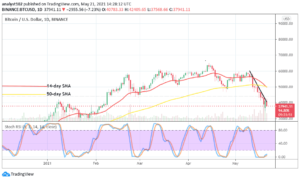
The popular DEX trading platform QuickSwap zkEVM says it can now offer its users much better prices for asset swaps following its integration with Orbs’ decentralized Liquidity Hub, which taps third-party sources of liquidity.
With the integration, QuickSwap zkEVM can offer some enticing benefits to users, with lower transaction fees, protection against MEV (Maximal Extractable Value), enhanced capital efficiency and lower rates on swaps. Best of all, the user won’t notice anything except the benefits, as all of the transactions occur under the hood, without their knowledge.
The lack of liquidity on DEX platforms is one of the most pressing challenges in the DeFi industry. Because most DEXs are essentially fragmented, relying on their own incentivized liquidity pools, they suffer greatly from the problem of slippage, which is when trades execute at a markedly different price to the one that was quoted. Slippage is a direct result of a platform not having enough liquidity to execute the trade immediately and in one go, and is especially common with larger trades. In some cases, the trade must be broken down into multiple transactions, leading to higher gas fees and each swap being executed at different rates.
With its Liquidity Hub, Orbs goes some way towards minimizing slippage, enabling users to tap into an amalgamated liquidity pool that includes both the DEX’s own liquidity and also on- and off-chain reservoirs. It provides DEXs with access to vastly more liquidity than they can provide on their own, and very often means more favorable trades for the end user.
Like all good DEXs, Orbs’ Liquidity Hub is fully decentralized, permissionless and composable, and the funds always remain with the user, meaning that it’s a non-custodial solution.
With today’s integration, traders utilizing QuickSwap on Polygon’s zkEVM network can tap into Orbs’ extensive Layer-3 infrastructure to access external liquidity, leading to superior price quotes and lower price impact.
Liquidity Hub works by rerouting order requests from the DEX’s own liquidity pools, enabling the user to tap additional sources of capital provided by third-party solvers who compete to fill swaps by tapping on-chain liquidity sources such as AMM pools and private inventories. In addition, the Liquidity Hub allows decentralized orders available to institutional and professional traders via an API, so they can also submit bids to complete trades. The beauty is that, while it will always search for the best possible price by going through these sources, it will execute these transactions without going through the DEX’s AMM, so there’s no added price impact.
In addition, it always guarantees a better price or your money back, so to speak. If the Liquidity Hub cannot find a better price, it will return the order back to the DEX AMM’s smart contract so the order is executed normally. And because all of this happens in milliseconds, it means users will only ever benefit, with their orders fulfilled rapidly and always at the best possible price.
For the end user, they’ll notice no difference to the way their trades are executed on QuickSwap zkEVM, other than the better rates. The user only ever interacts with the DEX’s regular user interface, so there’s no added complications involved in any swap, and every transaction will execute immediately, with minimal to zero latency, meaning it’s still possible to capitalize on real-time price movements.
As always, the user’s funds will remain in their connected wallet at all times until the trade executes, ensuring that their funds are totally secure.
Orbs Liquidity Hub on QuickSwap zkEVM is another key milestone for the DeFi industry and a key validation of the project’s efficiency as it seeks to become the industry standard for achieving DEX price swaps. This marks the third deployment for the Liquidity Hub protocol, which has previously been deployed on QuickSwap on Polygon and THENA on BNB Chain.























